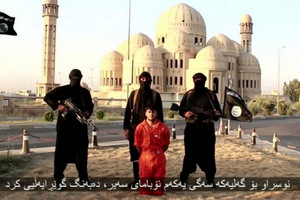Summary: As we lurch in a second phase of our mindless Long War, we lack the excuse of ignorance that led to our failures in Iraq and Afghanistan. After 14 years of war, a host of voices — people with a wide range of relevant expertise — explain the folly of our actions. Here is an excerpt from an article well worth reading about the West’s shallow thinking — almost certain to end with our tears.
Excerpt from “Magical Thinking about Isis“
Adam Shatz, London Review of Books, 3 December 2015
What most of the jihadis appear to have in common is a lack of any serious religious training: according to most studies, there is an inverse relationship between Muslim piety and attraction to jihad. As Olivier Roy, the author of several books on political Islam, recently said, ‘this is not so much the radicalisation of Islam as the Islamicisation of radicalism.’
By sending a group of French – and Belgian – citizens to massacre Parisians in their places of leisure, IS aims to provoke a wave of hostility that will end up intensifying disaffection among young Muslims.
… France has been using {its} weapons more frequently, more widely, and more aggressively in recent years. The shift towards a more interventionist posture in the Muslim world began under Sarkozy, and became even more pronounced under Hollande, who has revealed himself as an heir of Guy Mollet, the Socialist prime minister who presided over Suez and the war in Algeria.
It was France that first came to the aid of Libyan rebels, after Bernard-Henri Lévy’s expedition to Benghazi. That adventure, once the US got involved, freed Libya from Gaddafi, but then left it in the hands of militias – a number of them jihadist – and arms dealers whose clients include groups like IS. France has deepened its ties to Netanyahu – Hollande has made no secret of his ‘love’ for Israel – and criminalised expressions of support for the Boycott, Divestment and Sanctions movement.
In one of his last interviews, Tony Judt said:
When Bush said that we are fighting terrorism ‘there’ so that we won’t have to fight them ‘here’, he was making a very distinctively American political move. It is certainly not a rhetorical trope that makes any sense in Europe, [where politicians recognise that] if we begin a war between Western values and Islamic fundamentalism, in the manner so familiar and self-evident to American commentators, it won’t stay conveniently in Baghdad. It is going to reproduce itself thirty kilometres from the Eiffel Tower as well. {From his book Thinking the Twentieth Century .}
.}

ISIS beheading video
The French government refuses to accept any such thing. Most people in Paris were stunned by 13 November, but not those who were listening to IS. Weeks earlier, Marc Trévidic, a magistrate who specialises in terrorism cases, warned in Paris Match that France had become IS’s ‘number one enemy’ because of its activities in the Middle East. ‘It’s always the same story,’ he said in an interview after the attacks. ‘We let a terrorist group grow into a monster, and when it attacks us, we’re surprised … And we’re friends with countries that are responsible for disseminating this ideology – Saudi Arabia … We’re in a total paradox.’
… The airstrikes France is conducting with Russian co-operation may provide the public with a taste of revenge, but airstrikes seldom turn people against their rulers and often do the opposite. In co-ordinating the strikes with Russia, Hollande is moving in a direction fervently advocated by the French right, which has been suffering from an acute case of Putin envy. But such an alliance could, yet again, play into IS’s hands: other than Assad, there is no figure more reviled by Syrian Sunnis than Putin, so an air war in concert with Russia and in tacit alliance with Assad would fan the flames of Sunni anger, and be further fuel for IS propaganda.
————— End excerpt. —————

About the Author
Adam Shatz has contributed numerous articles on politics, music and culture to The New York Yorker, the Village Voice,American Prospect and the New York Times — and has reported from Lebanon and Algeria for the New York Review of Books. Shatz was editor of Prophets Outcast: A Century of Dissident Jewish Writing about Zionism and Israel .
.
No comments:
Post a Comment